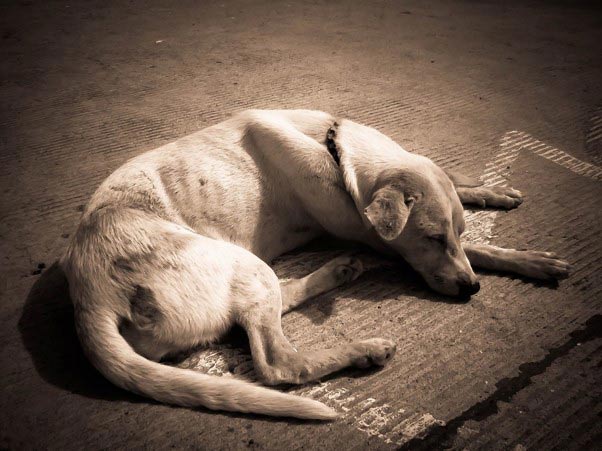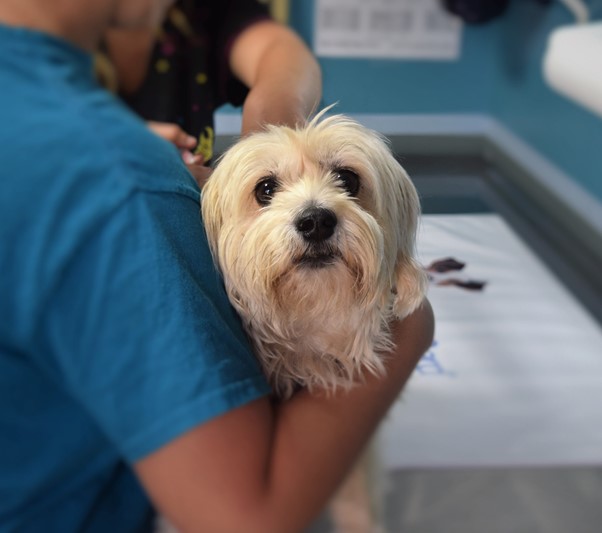The Risks of Kidney Disease in Dogs and How to Prevent It
- Last updated on February 6, 2023
- By: Caroline Stowe
Kidneys play an essential role in a dog’s health. They filter toxins from the blood, help regulate electrolytes and maintain fluid balance. Therefore, any damage to these organs can lead to serious problems.
Kidney disease is one of the common health issues in dogs which can be difficult to diagnose. Knowing what to look out for and how to prevent kidney disease can help keep your dog healthy and happy.
In this blog post, we will discuss everything that you should know about kidney diseases in dogs.
Kidney Disease in Dogs
Kidney disease, medically known as renal failure or chronic kidney disease (CKD), is a common and potentially life-threatening condition that affects dogs.
It can affect any breed at any age, although older dogs are more likely to be affected.
Kidney disease can be caused by a variety of factors, including genetic predisposition or environmental stressors. If not treated quickly, it can lead to severe organ damage and eventually death.
Types and Causes of Kidney Disease in Dogs
Congenital Kidney Disease
This is a type of kidney disease that is passed down from the parents. It can lead to serious organ damage and even death if it’s not treated quickly.
It can be caused by certain genetic mutations that reduce the efficiency of the kidneys, or by environmental factors such as exposure to toxins or infectious agents.
Chronic Renal Failure
This is a type of kidney disease that happens when dogs get older and their kidneys become more vulnerable to damage due to age-related changes in the body.
It can be caused by various factors such as prolonged use of certain medications, exposure to toxins or infection, and poor diet and nutrition.
Uremia Syndrome
This is a type of kidney disease that affects dogs, where the kidneys become unable to filter toxins and waste from the blood, causing them to build up in the body.
It can be caused by various factors such as prolonged exposure to toxins or infectious agents, genetic abnormalities, or poor diet and nutrition.
Degenerative Kidney Disease
This is a type of kidney disease that happens when the kidneys start to deteriorate over time due to age-related changes in the body.
It can be caused by various factors such as prolonged use of certain medications, exposure to toxins or infection, and poor diet and nutrition.
Glomerulonephritis
This is a type of kidney disease that can be caused by an infection or autoimmune reaction in the kidneys.
It can lead to inflammation and damage of the glomeruli, which are small structures in the kidneys that help filter toxins and waste from the body.
Acute Renal Failure (ARF)
This is a type of kidney disease that can be caused by sudden and severe damage to the kidneys due to a toxin or an infection.
It can cause sudden, severe loss of kidney function, which can lead to organ damage and even death if it’s not treated quickly.
Polycystic Kidney Disease (PKD)
This is a type of kidney disease that is caused by the build-up of abnormal cysts in the kidneys. It can lead to kidney damage and even organ failure if it’s not treated quickly.
Infectious Nephropathy
This is a type of kidney disease that is caused by an infection in the kidneys, such as bacteria or viruses. It can lead to kidney damage and even organ failure if it’s not treated quickly.
Urinary Tract Infections (UTIs)
These are bacterial infections in the urinary tract, which can cause inflammation and damage to the kidneys if they’re not treated quickly.
Amyloidosis
This is a type of kidney disease that is caused by the build-up of amyloid proteins in the kidneys. It can lead to organ damage and even organ failure if it’s not treated quickly.
Remember that kidney diseases in dogs can be managed if they are detected early enough.
Signs and Symptoms of Kidney Disease in Dogs
Lethargy and Weakness
Dogs with kidney disease may also experience extreme lethargy and weakness, as their bodies are unable to produce enough energy due to the lack of proper nutrition.

Increased Thirst and Urination
One of the most common signs of kidney disease in dogs is an increase in the frequency and amount of water they drink and urinate.
This is because their kidneys aren’t able to filter out toxins from the body as efficiently, which causes them to retain more fluid than normal.
As a result, they’ll need to urinate more often and drink more water.
Weight Loss
Dogs with kidney disease may also experience unexplained weight loss due to the lack of proper nutrition. This can occur because their bodies are unable to absorb nutrients from food as efficiently, resulting in a decrease in overall body mass.
Poor Appetite
Dogs with kidney disease may also experience a decrease in their appetite, as they may not feel hungry or have difficulty digesting food. This can further contribute to weight loss and malnutrition if not addressed quickly.
Vomiting and Diarrhea
Dogs with kidney disease may also experience frequent vomiting and diarrhea, which can be caused by the toxins and waste that build up in their bodies.
Bad Breath
Dogs with kidney disease may also have a strong and unpleasant odor to their breath due to the accumulation of toxins in the body.
Pain
Dogs with kidney disease may also experience pain in the abdominal area or around the kidneys due to inflammation of the organs.
Pale Gums: Dogs with kidney disease may also have pale gums, as their body isn’t able to produce enough red blood cells due to the lack of proper nutrition.
Urine Changes
Dogs with kidney disease may also experience changes in the color or frequency of their urine, which can indicate a problem with the function of their kidneys.
How a Veterinarian Diagnosis Canine Kidney Disease
No matter what type of kidney disease your dog has, it’s important to get them treated as soon as possible. Early diagnosis and treatment can help improve their quality of life, and may even save their life.
A veterinarian can diagnose kidney disease in dogs through a combination of physical examination, blood tests, urine tests, imaging techniques, and biopsies.
During the physical examination, the vet will check for any abnormalities in the dog’s body such as lumps or bumps that may indicate a problem with their kidneys.
Blood tests will reveal changes in their red and white blood cells, as well as levels of creatinine and other waste products that can indicate kidney disease.
Urine tests will check for signs of inflammation or infection in the kidneys, while imaging techniques such as MRI or CT scans can reveal any blockages or abnormalities in the organ.
Finally, a biopsy may be performed to confirm the diagnosis.
Treatment Options for Your Dog’s Kidney Disease
If your dog is diagnosed with kidney disease, it’s important to follow your veterinarian’s instructions for treatment. This may include:
Diet Change
Changing the diet of a dog with kidney disease to include less protein and sodium can help reduce symptoms and improve their quality of life. Check out our recommendation on the best kidney diet for dogs here.
Medications
A veterinarian may prescribe medications such as antibiotics, anti-inflammatory drugs, or antifungal agents to help treat infections or inflammation caused by kidney disease.
Fluid Therapy
Fluid therapy is a common treatment for dogs with kidney disease, as it helps flush toxins from the body and restore electrolyte balance in the blood.
Surgery
In some cases, surgery may be necessary to remove any blockages in the kidneys that are causing problems with function or drainage of urine from the body.
Dialysis
If other treatments are not successful in treating kidney disease, dialysis may be recommended to help filter toxins from the body and maintain proper fluid balance in the blood.
Prevention Strategies for Canine Kidney Disease
Regular Vet Checkups
It is important to take your dog for regular vet checkups in order to detect any changes or abnormalities with their kidneys.

This can help identify kidney disease at an early stage before it progresses and becomes more severe.
During these checkups, your vet will be able to take blood tests and urine samples to look for signs of kidney disease.
Adequate Hydration
Make sure your dog always has access to clean, fresh water, as adequate hydration can help reduce the risk of kidney disease.
Proper Nutrition
Feeding your dog a balanced diet that is rich in vitamins and minerals will help ensure their kidneys are getting the nutrients they need to stay healthy.
Avoid Toxins
Make sure your pet is not exposed to any toxins or chemicals that may be harmful to their kidneys, such as antifreeze or other household cleaners.
Early Detection
If your dog shows any signs of kidney disease, it’s important to seek veterinary attention as soon as possible in order to start treatment and prevent further damage to its kidneys.
It’s also important to monitor your dog regularly for signs of worsening symptoms, as this can indicate that the disease is progressing.
With proper care and management, dogs with kidney disease can lead happy and healthy lives.
How to Manage your Dog's Diet with Renal Failure
Managing your dog’s diet when they have been diagnosed with renal failure is one of the most important steps you can take to ensure its comfort and health.
The goal of managing their diet is to reduce the workload on their kidneys and promote adequate nutrition, allowing them to live full and happy life.
The first step in managing your dog’s diet is to reduce the amount of protein they consume.
Reducing the amount of protein that your dog consumes will help reduce the workload on their kidneys, as it requires less energy for their body to process and filter out toxins from a lower-protein diet.
Additionally, you should also make sure to feed your pet high-quality, low-sodium foods in order to reduce the workload on their kidneys.
Sodium can be difficult for a dog’s kidneys to process, so by reducing the amount of sodium in your pet’s diet you can help improve their quality of life and reduce symptoms associated with renal failure.
Finally, it’s important to feed your pet small, frequent meals throughout the day rather than one large meal.
This will help to avoid any spikes in blood sugar levels, as well as keep their energy levels up and allow for better digestion of their food.
Watch the video below to learn what is a good diet for your dog diagnosed with kidney disease.
Conclusion
Kidney disease is an unfortunate reality for many pet owners but understanding the risks and taking proactive steps toward prevention can help ensure your pup stays happy and healthy for years to come!
By keeping an eye out for any potential warning signs such as increased thirst or urination; vomiting or diarrhea; loss of appetite; weight loss; bad breath or mouth ulcers; and fatigue—as well as following a balanced diet plan and monitoring their dental hygiene—you’ll be able to catch any issues before they become too serious.
Of course, if you ever have questions feel free to contact your veterinarian who will be able to answer them quickly!
-
Author: Caroline Stowe
- Updated on February 6, 2023
Disclaimer: This article doesn’t intend to replace professional veterinary advice, nor should it be used as a substitute for veterinary services, diagnosis, or treatment. The content on this website, including information and opinions expressed herein, are intended for general informational purposes only. In case you have concerns or questions regarding your dog’s health and diet requirements, please consult your veterinarian before doing anything that might affect it.
DogPetGuide.com and the writer are not responsible or liable for any damage, liability, costs, or claims arising from any possible consequences of the reader’s action after reading this article.




